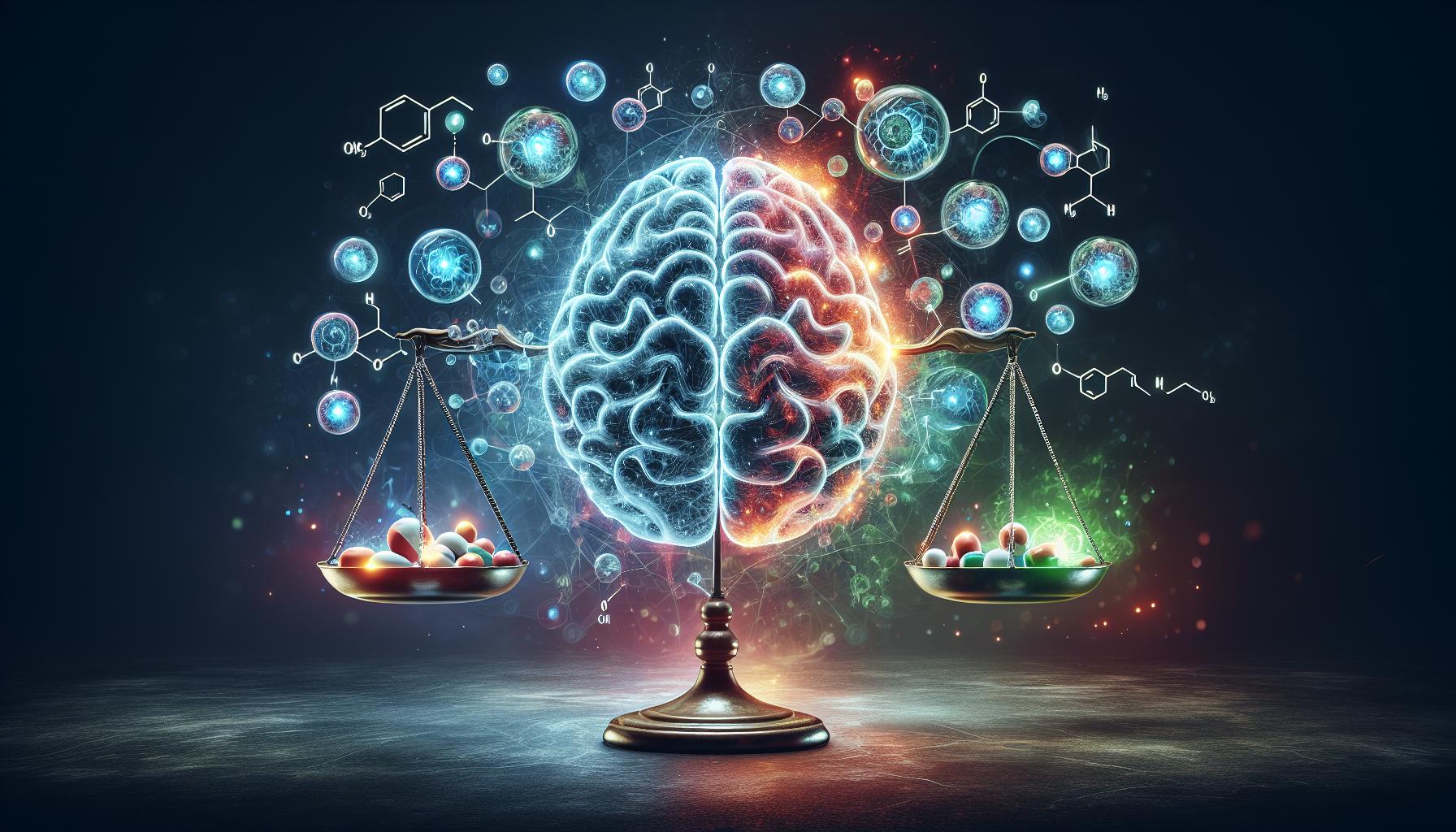
Introduction: Navigating the Nootropic Know-how
So, what is a nootropic in medicine? Simply put, a nootropic is a medicinal compound or substance used to enhance cognitive functions. These brain-boosters, colloquially referred to as “smart drugs,” are renowned for their mind-enhancing capabilities. From sharp memory to increased productivity and creativity, they’re the talk of the town in today’s fast-paced world. In the following sections, we’ll delve into the nitty-gritty of nootropics, how they work, their uses, and much more!
Nootropics: The Brain-Boosting Breakthrough
Nootropics, a term born from the Greek words ‘nous’ meaning ‘mind,’ and ‘trepein’ implying ‘to bend,’ are compounds that potently push the potential of your brain. They work in various mind-boggling ways, from enhancing mental energy and concentration to improving memory and mood swings.
Some renowned nootropics include Piracetam, which is often hailed as the pioneer of nootropics and is credited for its mind-sharpening marvels; and Modafinil and Adderall, the sought-after substances that banish fatigue and shoot up cognitive abilities.
Delving Deeper: How do Nootropics Function?
Nootropics work by interacting with the brain’s neurotransmitters – the chemical messengers that transmit signals across the brain. They perpetuate the production of these key players such as dopamine and serotonin, thus, amplifying the brain’s functionality and performance.
Nootropics: Natural vs Synthetic
When we knock on the door of nootropics, we meet two members – naturally-occurring and synthetic. Natural nootropics, as the name suggests, come from nature’s lap, with herbs, roots, and fruits serving as their main source. Synthetic nootropics are man-made marvels designed in labs to deliver targeted effects.
While both offer cognitive enhancements, synthetic nootropics usually showcase immediate and stronger effects. On the contrary, natural nootropics don’t just dip their toes but take gentler strides in the pool of potency, while also boasting fewer side effects.
A Quick Run-Through: Some Popular Natural and Synthetic Nootropics
In the natural corner, we have compounds like Ginkgo Biloba, known for its memory-boosting effects, and Rhodiola Rosea, a plant extract celebrated for reducing brain fog and fighting fatigue. In the synthetic ring, stand substances like Noopept, known for its strong neuro-protective properties, and Aniracetam, reputed for enhancing creativity and holistic thinking.
Uses of Nootropics
Nootropics serve various purposes – right from sharpening mental clarity, enhancing concentration and memory, to boosting mood, reducing stress, and even improving sleep quality. They’re a popular choice amongst students for late-night study sessions, while working professionals pop them to power up productivity. Also, they are finding increased acceptance in the realm of sports for enhancing concentration, and among aging adults to delay the dawn of dementia.
A Note of Caution: Side Effects and Safety Concerns
While nootropics might be your brain’s best buddies, like any other medicine, they might bring along unwanted guests – side effects. Generally well-tolerated, they might sometimes trigger minor side effects, including headaches, sleep disturbances, or stomach upset. Therefore, it’s highly recommended to seek professional advice to find the right dosage and to check for potential drug interactions before embarking on a nootropic journey.
Conclusion: The Nootropics Narrative
In a nutshell, nootropics are compounds designed to boost brain power, one pill at a time. Whether natural or synthetic, their key mission is to up the ante of your cognitive capabilities– from improving memory, focus, and clarity to easing stress and elevating mood. So, as we race in the modern world, these ‘smart drugs’ might just be what the brain-doctor ordered.
Frequently Asked Questions
1. Are nootropics safe to use?
Yes, nootropics are generally safe to use. However, individual reactions to nootropics can vary, hence, it’s advisable to start with a low dose and consult a healthcare professional.
2. How do nootropics work?
Nootropics work by interacting with the brain’s neurotransmitters – enhancing the production or effectiveness of these chemical messengers, thus, amplifying brain functionality.
3. Can I mix different nootropics?
Yes, you can mix different nootropics, a practice called ‘stacking’. However, it’s crucial to research the nootropics you intend to stack or consult with a healthcare professional to avoid adverse effects.
4. Can nootropics help with anxiety?
Yes, some nootropics can help reduce anxiety and stress levels. For instance, Aniracetam and Phenibut are known for their anxiety-reducing effects.
5. Do nootropics have any side effects?
While nootropics are generally well-tolerated, they might trigger minor side effects like headaches, sleep disturbances, or stomach upset in some individuals.


0 comments